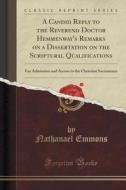
Latino-Faliscan languages
Latin language, Romance languages, French language, Latin declension, Latin literature, Vulgar Latin, Vulgate, Latin spelling and pronunciation, Latin
- Editore:
Books LLC, Reference Series
- EAN:
9781157475798
- ISBN:
1157475795
- Pagine:
- 152
- Formato:
- Paperback
- Lingua:
- Inglese
Descrizione Latino-Faliscan languages
Source: Wikipedia. Pages: 152. Chapters: Latin language, Romance languages, French language, Latin declension, Latin literature, Vulgar Latin, Vulgate, Latin spelling and pronunciation, Latin conjugation, New Latin, Classical Latin, Latin grammar, Honorificabilitudinitatibus, List of Greek and Latin roots in English, Traditional English pronunciation of Latin, List of Germanic and Latinate equivalents in English, Romance copula, Vulgar Latin vocabulary, Old Latin, Contemporary Latin, Late Latin, List of Latin phrases in A Canticle for Leibowitz, List of Latin translations of modern literature, Subjunctive by attraction, List of Romance languages, Classification of Romance languages, History of Latin, Medieval Latin, Instruction in Latin, Ecclesiastical Latin, List of masculine Latin nouns of the 1st declension, Latin mnemonics, Reginald Foster, Macaronic language, Grammarians' War, Romance verbs, Senatus consultum de Bacchanalibus, Vulgata Sixtina, Latin Wikipedia, Vetus Latina, Virgilius Maro Grammaticus, List of songs with Latin lyrics, Sixto-Clementine Vulgate, Latin regional pronunciation, Hiberno-Latin, La Spezia-Rimini Line, Renaissance Latin, Ablative, Apex, Wallsend Metro station, Latin exonyms, Faliscan language, Romance plurals, Claudian letters, Old Occitan, Joseph Scottus, John Clyn, Accusative and infinitive, Dog Latin, Homo sacer, National Latin Exam, Third declension, Scrambling, Hans Henning Ørberg, Terence Tunberg, Syllable stress of Botanical Latin, First declension, Gaius Licoppe, Cena Cypriani, Ars grammatica, Novena, Latin Letters Office, Sicilicus, Latinitas Foundation, Bodmin manumissions, Association for the Reform of Latin Teaching, Meissner's Latin Phrasebook, Latinisation, Judeo-Latin, Lector Latinus, Jus Spolii, A. Gratius Avitus, Metella, Etiamsi omnes, ego non, Kennedy Professor of Latin, SIDSPACE, Eastern and Southern Romance languages, Diachronics of plural inflection in the Gallo-Italian languages, Ernst Pulgram, Friedrich August Grotefend, Double dative, Schola Latina Universalis, Clitic climbing, Ruben of Dairinis, Nuntii Latini, Latinism, Verb of fearing, Lexicon Recentis Latinitatis, Parisiana poetria. Excerpt: The following is an alphabetical list of Greek and Latin roots, stems, suffixes, and prefixes commonly used in English. Those used in medicine and medical terminology are not listed here but instead in Wikipedia's List of medical roots, suffixes and prefixes. The traditional English pronunciation of Latin, and Classical Greek words borrowed through Latin, is the way the Latin language was traditionally pronounced by speakers of English until the early 20th century. Since the Middle Ages, speakers of English (from Middle English onward) pronounced Latin not as the Romans did, but according to a traditional scheme borrowed from France. This traditional pronunciation became closely linked to the pronunciation of English, and as the pronunciation of English changed with time, the English pronunciation of Latin changed as well. At the end of the 19th century, this Anglo-Latin pronunciation began to be superseded in Latin instruction by a reconstructed Classical pronunciation, closer to an earlier Roman pronunciation, and with a more transparent relationship between spelling and pronunciation. By the mid-20th century, classroom use of the traditional pronunciation had all but ceased. The traditional pronunciation, however, survives in academic English vocabulary: In most cases, the English pron...












